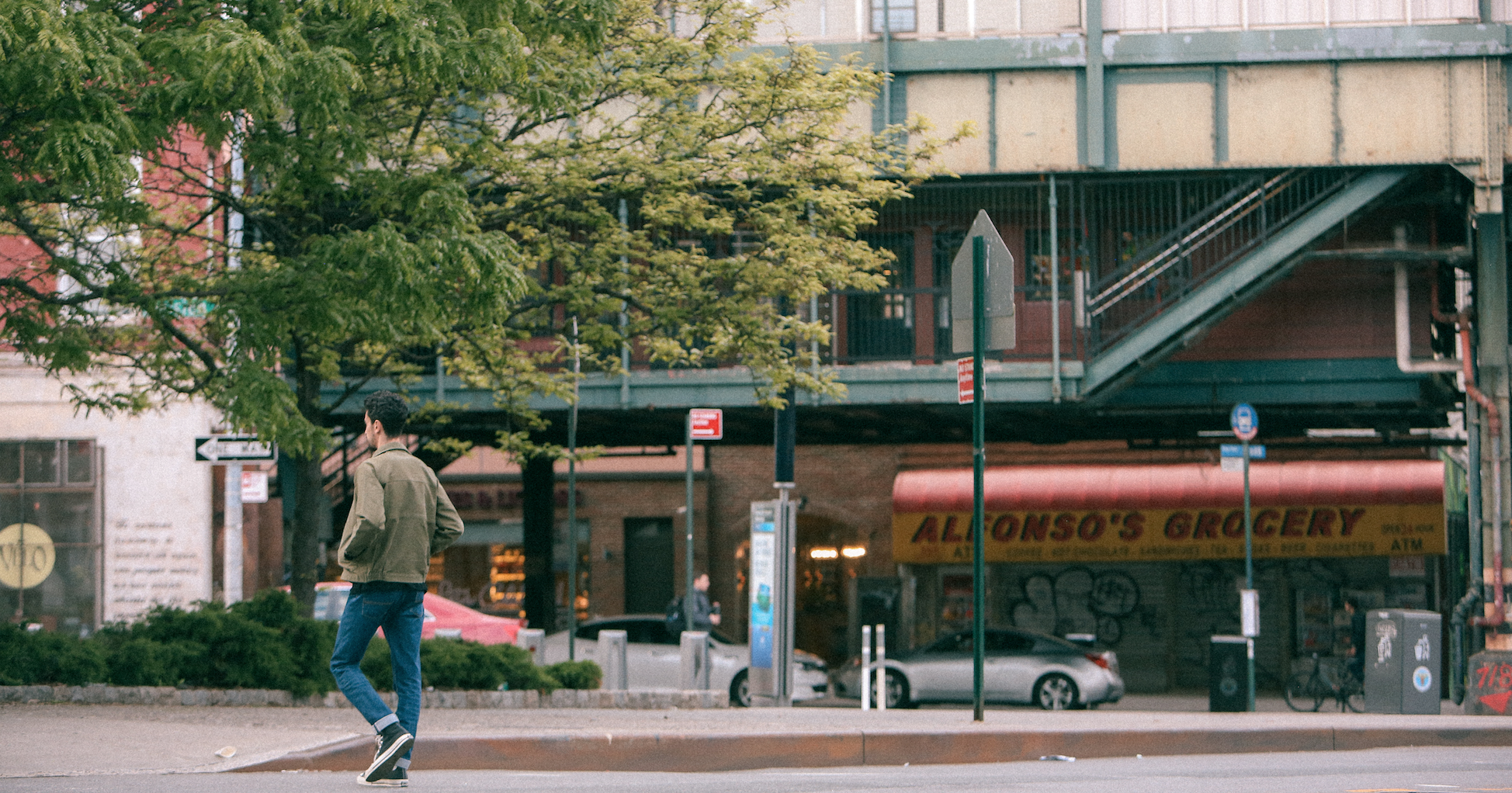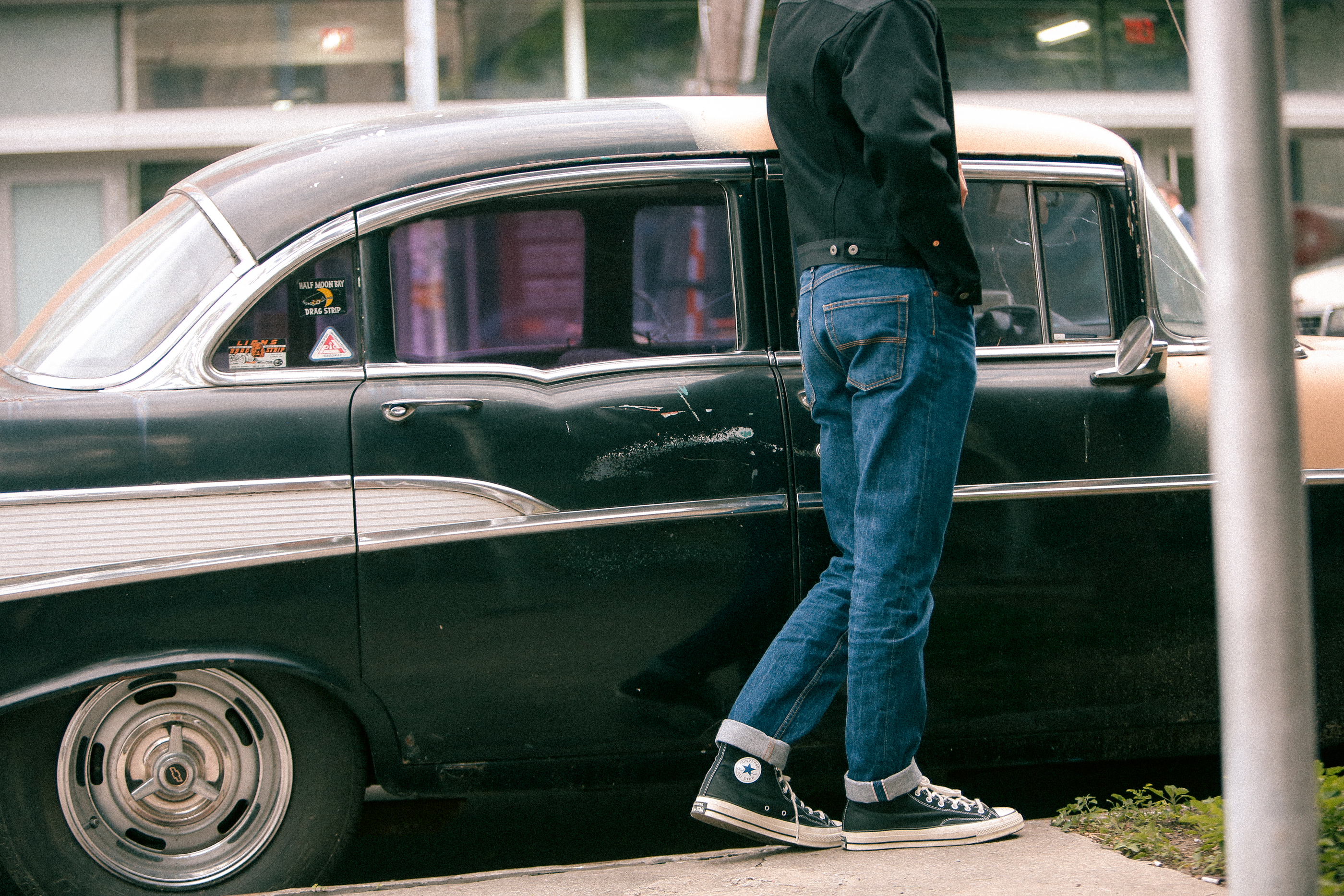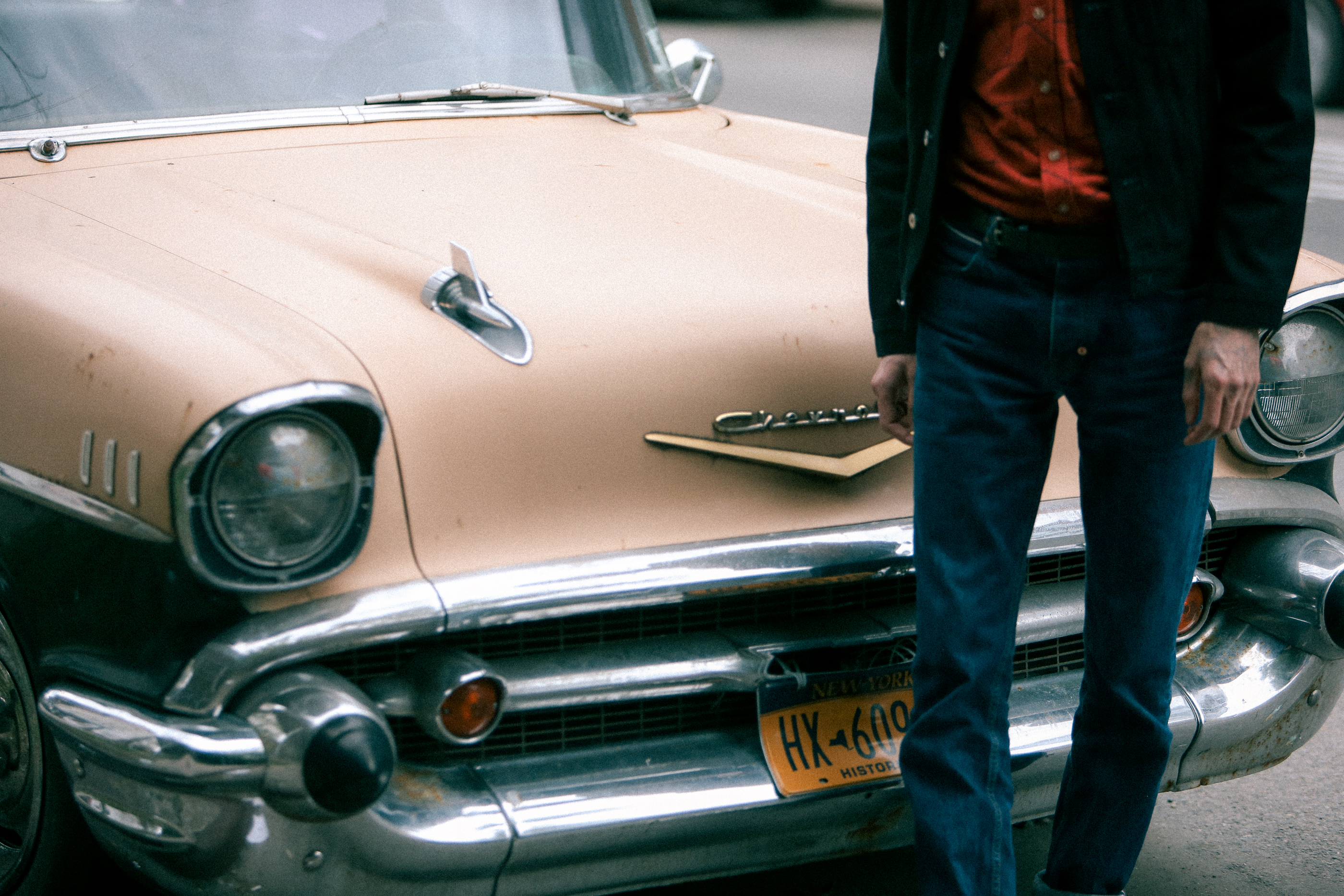Get Familiar: Grant
With a new album in the works, the unidentified producer speaks out.

Get Familiar: Grant
With a new album in the works, the unidentified producer speaks out.

Grant‘s rise to acclaim has been quite extraordinary. It all started in 2014 with the unidentified producer dropping several precise, swinging deep house numbers via his own label, The Lauren Bacall. Up next was The Acrobat, a debut LP but one that hinted at someone who had already been deep in the game for years. This was not the work of an inexperienced producer; this was high-quality house material by someone who knew exactly what they were doing.
Yet little to no press surrounded these releases. Absent were the lengthy press releases and artist interviews; rather, the music landed and if you heard it you heard it; those who didn’t didn’t. Almost all his work has been released on vinyl only, with only limited pressings. Grant, by and large, became a little secret for those in the know, earning himself a small but loyal following who were eagerly anticipating his next material—which, typically, didn’t take long. Cranks landed in 2016, this time on Mörk, the sub-label of Lobster Theremin, and slipped comfortably into our Best Releases of 2016—lauded for its low-key, yet unforgettable brand of house and totally timeless feel.
Releases continue to land thick and fast, with three more EPs this year and an album on the way—with more details set to be announced soon. We connected with the rising producer over Skype, keen to learn more about the story behind his work.
You keep your identity secret, but how old are you?
In my mid-30s.
Where do you base yourself?
I have been living in Europe for two months now.
What music are you listening to at home right now?
In no particular order:
Taylor Dupree
Kamasi Washington
Mf Doom
Donal Byrd
Slum Village
Can
Yussef Kamaal
The list goes on….
Where did you grow up and what are your earliest memories of music?
I grew up in the US, mostly NY, and my earliest memory of music comes from my Dad listening in the car to the cassette of this one album on repeat. I could literally hum the album in my sleep because I heard it so much. I only discovered many years later what it actually was: Steely Dan‘s Aja.
Did you train in music as a child?
Not at all. I remember my friends dreading their piano classes so much. I felt lucky back then to just jet off on my skateboard, but of course now I dearly regret it.

What music were you listening to growing up? What was the first group that drew you into electronic music?
To be honest, my passion for music came pretty late and only became an important part of my life around 18 when I left home and started my adult life. Until then, since I was a skateboarder, it was the odd punk and hip-hop bits that I would pick up from watching the 411 skate videos. I would wait for the credits to roll at the end and then buy those CDs. Luckily for me, those videos were actually very tastefully curated musically.
What sort of music were they playing? What bands were you drawn to?
It was a broad mix of music really. Off the top of my head, some of the memorable tracks are :
Curtis Mayfield “Move On Up”
Gang Starr “No Shame In My Game”
Guru “No Time To Play”
Sol “The Box Car”
Mobb Deep “Cradle To The Grave”
When did you begin producing your own music? Can you remember when you produced your first track?
I first started around 21 years old. At the time I still had never owned a computer myself so it was me hanging at a friend’s house who had a computer with Logic and him showing me how it’s done. All I was doing was shouting, “Man, we should put a snare at that point that sounds like this and add a little pad that sounds like that!”
“It’s taken me close to 15 years to finally craft and release music that I can finally stand behind.”
What sort of music were you trying to make at this point? Does it resemble anything that you produce today?
In the grand scheme of things, yeah, it was house and techno, with a 4/4 rhythm. But obviously it was very amateur and had no soul at all or any identity; it was actually quite bland.
Like I mentioned earlier, it’s taken me close to 15 years to finally craft and release music that I can finally stand behind. It’s the weight of all the music I’ve listened to, records bought, endless nights out, and days in the studio that finally merged into what I call “Grant.”
Do you think this naivety actually helped you at the start?
The only advantage it had on me is that it kept it very fun; making music was strictly a hobby back then, like the best one ever. I had no plans to make a career out of it
But in terms of quality of output, not at all in my case. Certain artists, on the other hand, write some of their best pieces of music in their early production days because of that naivety; when they have no set of rules through which to approach production. As the audience, this can sometimes draw you to the music because it feels approachable and familiar.
Were you using much hardware at that time?
No, for the first few months I could only work at my friend’s house so I did not own anything. Then I purchased my first computer and for a couple of years, that is all I had. It was due to lack of money as much as lack of knowledge.
So your earlier Grant productions are all done inside the box?
No, I had been working on analog gear for quite a while when I started Grant in 2014. But all my earlier productions were in the box, but that was quite a while ago.
What was that goal at the start? Did you ever want to do music full-time at that point?
Not at all! I was not thinking further than the following night out, which at the time was nearly every night! I spent so many years following the same routine of really indulging in nightlife, record shopping, and studio time. I was mostly broke all the time, but it really didn’t bother me whatsoever. Now, over 15 years later, somehow I have to accept that I have made a career out of it.
Do you think this shaped your music today?
Yes, all those years spent on dance floors really help my creative processes; the ways in which I edit my tracks are very much inspired by club music and the way I DJ. Basically, I am making tailored tracks for me to play out in some way.

How often are you DJing nowadays?
Very little, because I tend to be very selective on the gigs I want to play. I only want to perform for promoters who are as passionate about their craft as I am with my music, so I can do my thing and feel good about it.
And, also, I am still amazed when people know who I am, since most of my music has been released on vinyl with limited pressings, so at the end of the day, not many people have access to it.
Grant arrived on the scene in 2014 with “Hopes Die Slowly.” What are the origins of the project? Why did you start it?
Well, at that point I had been producing music for years, but I was never able to really make a sound that felt personal and that I could look back and feel pleased about.
So, from my perspective it felt like a natural move to start a new project as I felt like a fresh new producer, if that makes any sense; and from the perspective of the audience, I wanted my music to be judged with a set of new ears without any preconceived judgment or ideas of what they think I sound like because of past ties to certain labels, artist or sound.
Did you have a clear idea of how you wanted Grant to sound? Were you working towards it? Describe the moment when you found it.
Yes. When I finished the track “Hopes Die Slowly,” it was clear that I needed to start a new project. It was the first track where I felt a strong personal connection and the first that embodied the sound I had been trying produce for so many years.
How clear was the Grant sound in your head?
I don’t really think about it in that way or try to plan how I am supposed to sound.
At one point, I just started to make music that I felt connected to.
What changed to allow you to produce “Hopes Die Slowly?”
Just experience kicking in, I think.
You seem to enjoy sampling in your work, in “Hopes Die Slowly” and “Mainstream Belief,” off the top of my head. Where do you draw your samples from?
It is from my extensive record collection, movies, record shopping—nothing other than the classic routes, to be honest. But in a funny way I always feel that good samples draw more good samples; what I mean by that is if you find something from an artist if you dig their catalog or labels they released on you’re usually set to find a bunch more stuff to work with.
The key ingredient to good sampling in my mind is patience. I sometimes feel like a monk when I dig through music for hours just to find a little three-second snippet to use.
What equipment are you using for your samples?
The classic old turntable recorded connected directly into the MPC or via a mixer into my DAW for longer recordings. Also, the odd bits of sound or movie sample found on the net.
“I very rarely make a track that does not include some sort of sample, even the smallest bit.”
What do you think the benefit of a sample is? What draws you to them?
When I am in the studio and start working on a track, I really have no specific idea of what I am going to make. So, really a sample will entirely dictate the direction I am going to be taking on so many levels, including the texture, the length, and the style of the sample (a drum hit or loop, vocal snippet, etc). Sometimes the actual key of that sample also guides me; I very rarely make a track that does not include some sort of sample, even the smallest bit.
I understand that Grant is the rebirth of a popular musician under a new guise. What can you tell us about this old project?
Firstly, I think popular is a very strong word not suited, and like explained earlier I don’t want any link to my past work so as not to put any preconceived ideas of what I am supposed to sound like in the auditor’s mind.
We all tend to categorize things in a pretty strict set of boxes; we often think someone is supposed to sound a certain way even before the first beat hits; we are already biased in a good or bad way depending if we are a fan or not of that artist. I wanted to bypass that entirely.
Do you still release under different aliases?
Yes.
How do you perceive your music?
For me, in the grand schemes of things it’s “deep atmospheric house,” but again it’s impossible to generalize with specific terms, as house for me is something entirely different for some other individual.
Do you consider it club music?
I play this in the club so for me, definitely.
Is there a reason behind the name “Grant?”
It’s inspired by the 1950’s Hollywood noir era, in particular, the Cary Grant
period of creativity in the arts. It had a style that stands the test of time.

How did your relationship with Lobster Theremin come about?
They are the distributor for The Lauren Bacall label. The plan was to self-release Cranks as some sort of white label, but I sent Jimmy from the label some of the tracks and he offered me to work on an album for Mörk instead. The rest is history.
Your productions are rolled out thick and fast. What’s the reason for this high output?
It’s really simple maths: I spend quite a lot of time in the studio, so consequently, a lot of material is born.
I have been enjoying a lot the album format too where I can really stretch my style and focus on a more niche house style, from more Chicago, or let’s say more UK, and try to paint a bigger picture.
Do you see your music as a direct outlet for emotions and things happening in your life?
It’s true that my big bursts of creativity are always linked to big changes in my life,
but it is common knowledge that many artists have written some of their best work during a period of depression or extreme happiness.
“I am far from making anything revolutionary. I am simply expressing my vision of house.”
You have a very specific style: precise, swinging deep house with bags of character. Can you trace it back to your earlier influences?
It’s one hundred percent a result of my musical tastes. At the end of the day, I am far from making anything revolutionary. I am simply expressing my vision of house.
“I make music in a very secluded way, where I never ask advice or opinion on my tracks before I release anything.”
Were you surprised at the success of Cranks?
Totally! I make music in a very secluded way, where I never ask advice or opinion on my tracks before I release anything. If I am pleased with the end of result then I put it out and if other people connect then it’s amazing. And if they don’t, well they don’t.
Do you feel that your sound will evolve over coming years? How do you see it doing so?
It will naturally evolve, I think. I am constantly discovering new artists, expanding my music tastes to a wider variety of styles and all that will influence my output over time. Maybe next time we speak it will be under a new moniker altogether. Who knows?
What’s your studio setup like nowadays?
I used to have a much more analog extensive studio but I just moved and had to sell most of it for practical and financial purposes. So right now, it’s mainly an MPC 2000 xl – Korg Electribe, various little synths on rotation, and of course my Technics 1200 turntables. And also my record collection for sampling.
What are the specific VSTs or plug-ins you’re using?
Those come in handy for the processing part mainly. The wave series, fab filters,
and the Arthurian plug-ins are really fun, too.
You’ve got a new album in the works. How does it compare to your previous material?
Yes, indeed it will be the first release on my new label Duke’s Distribution. It’s coming out in November as a double vinyl. This album is much more US house influenced; the tracks are more driven by the baselines as a center piece.
How long did it take to produce? Did you go in the studio to produce an album or is it a mix of old and new material?
It is all original material that I’ve made over the past eight months, I would say. So, yeh, it was me putting in the hours in the studio.
I did not plan on making an album but after gathering two or three tracks it felt like I was creating a body of work that would suit better that format, so I rolled with it.
What else have you got lined up?
In 2018, I will be continuing to release music via my Grant vinyl series. I also have an EP planned for Mörk.
And I am very exited about a collaborative project I have been working on for the past year and half that will finally see the out in early 2018 via Duke’s Distribution.

